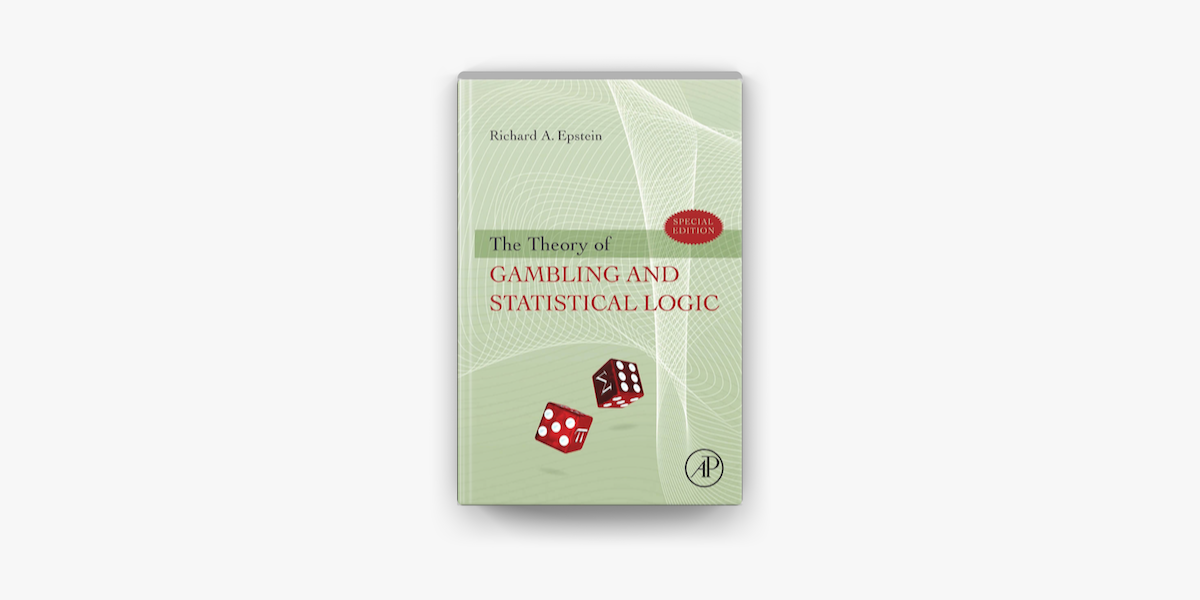Theory Of Gambling And Statistical Logic



Early in his rise to enlightenment, man invented a concept that has since been variously viewed as a vice, a crime, a business, a pleasure, a type of magic, a disease, a folly, a weakness, a form of sexual substitution, an expression of the human instinct. He invented gambling.
Recent advances in the field, particularly Parrondo's paradox, have triggered a surge of interest in the statistical and mathematical theory behind gambling. This interest was acknowledge in the motion picture, '21,' inspired by the true story of the MIT students who mastered the art of card counting to reap millions from the Vegas casinos.
Richard Epstein's classic book on gambling and its mathematical analysis covers the full range of games from penny matching to blackjack, from Tic-Tac-Toe to the stock market (including Edward Thorp's warrant-hedging analysis). He even considers whether statistical inference can shed light on the study of paranormal phenomena. Epstein is witty and insightful, a pleasure to dip into and read and rewarding to study. The book is written at a fairly sophisticated mathematical level; this is not 'Gambling for Dummies' or 'How To Beat The Odds Without Really Trying.' A background in upper-level undergraduate mathematics is helpful for understanding this work.
Theory Of Gambling And Statistical Logic Theory
Review of 'The Theory of Gambling and Statistical Logic' (Epstein, R. A.; 1967) Published in: IEEE Transactions on Information Theory ( Volume: 15, Issue: 5, September 1969 ) Article #. Statistics & Awards; Programs and Communities. Curriculum Resources. Classroom Capsules and Notes. Browse; Common Vision; Course Communities. Browse; INGenIOuS; Instructional Practices Guide; Mobius MAA Test Placement; META Math. META Math Webinar May 2020; Progress through Calculus; Survey and Reports; Member Communities. 'Richard Epstein's classic text, The Theory of Gambling and Statistical Logic has defined the mathematics of gambling for an entire generation of researchers, statisticians, computer programmers, and serious students of the various games of chance we play. This is formally stated by game theorist Richard Arnold Epstein in The Theory of Gambling and Statistical Logic as: Theorem 1: If a gambler risks a finite capital over many plays in a game with constant single-trial probability of winning, losing, and tying, then any and all betting systems lead ultimately to the same value of mathematical. The Theory Of Gambling And Statistical Logic Second Edition always more, is the simple answer. A quick overview of the kinds of games you can typically expect from a casino The Theory Of Gambling And Statistical Logic Second Edition includes slots, poker, blackjack, roulette, scratch cards, bingo, keno, craps and baccarat, to name but a few.